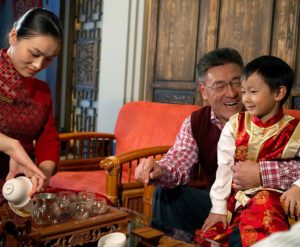Confucianism, Chinese Familism and Leadership Formation
This particular issue explores the relationship between the roots of Chinese familism and its Confucian offspring throughout Southeast and East Asia. Familism forms the substructure of various religious expressions throughout many parts of Asia. As such, it continues to have a profound influence on leadership patterns and identity formation among and between Christian communities in the broader Asian diaspora. Issues of power, hierarchy, authority and organization are shaped by familism; this formidable cultural presence co-mingles with the church’s reading of scripture, its worship practices, leadership formation and theologizing. The intersection of these multi-layered realities is of particular ecclesial import as church leaders wrestle with what emerges from the encounter between Confucian foundations and Christian identity.
These themes are explored through a lead article by Shi-Min Lu. Lu argues that harmony, as expressed in the unequal relationship of Chinese familism, can be revitalized through the expression of harmony as defined by Max De Pree in his concept of leadership formation. Lu first defines Chinese familism and situates it within the history of Confucianism and Chinese culture. This is followed by a comparative analysis of leadership formation within the Chinese cultural context, in light of the current leadership discoveries emanating from the West. She concludes with a presentation of potential ways in which familial ideals might be integrated with De Pree’s leadership principles.
Respondents to Lu’s article represent a wide range of perspectives including China, Japan, Korea and Vietnam as well as multi and intergenerational experiences in the US. They engage Lu’s insights, offer constructive feedback and probe the barriers, tensions and questions posed by familism in their particular contexts.


